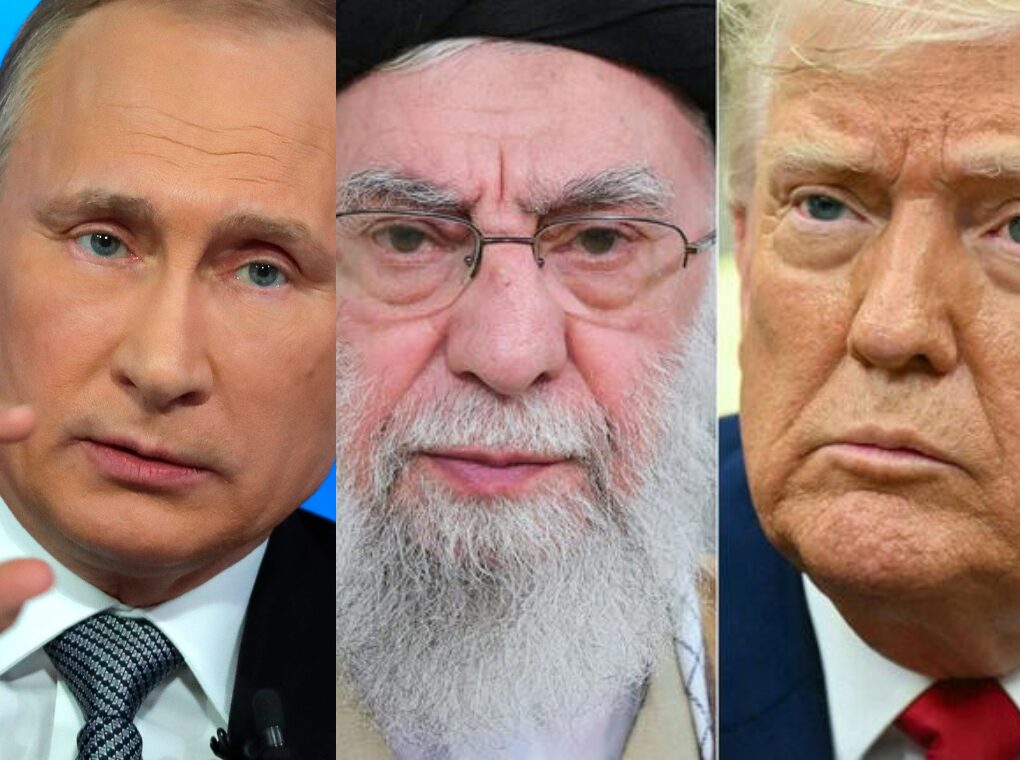The recent U.S. airstrikes on Iranian nuclear sites—known as Operation Midnight Hammer—have shaken the Middle East and reignited global fears of a major war. But one major power’s response has drawn special scrutiny: Russia. Despite its thunderous condemnation, Moscow’s actual reaction has been muted. With its military deeply bogged down in Ukraine, Russia’s threats appear hollow—raising serious questions about whether it can back up its words with real power.
Precision Bombs, Strategic Chaos
On June 17, six B-2 stealth bombers launched a surprise aerial assault on Iran’s nuclear facilities in Isfahan, Natanz, and Fordow. While Washington framed the strike as “surgical” and defensive, the political fallout has been anything but contained. President Donald Trump’s blunt statement— “we blow up all the nuclear stuff”—exposed the lack of a coherent long-term strategy and fueled global fears of escalation.
The sites targeted were critical to Iran’s uranium enrichment program. Though damaged, satellite imagery and IAEA reports confirm Iran’s underground infrastructure remains largely intact suggesting the strike was more a warning shot than a knockout blow.
Russia’s Harsh Words, Limited Moves
Russian leaders quickly condemned the strike. Dmitry Medvedev warned the U.S. had “achieved the opposite effect” and implied some countries were willing to arm Iran with nuclear weapons—though he failed to name any. At the UN, Russia’s envoy accused the U.S. of unleashing “Pandora’s box” and cosponsored a ceasefire resolution with China and Pakistan.
But beyond these rhetorical flourishes, Moscow did little else.
The reality is sobering: Russia is already stretched thin, waging a grinding, resource-draining war against Ukraine. With tens of thousands of troops committed, its economy under sanctions, and its diplomatic capital eroding in Europe, Russia lacks both the bandwidth and leverage to intervene decisively in the Middle East.
Putin’s Dilemma: Talk Big, Act Small
Iran quickly reached out to Moscow, with its foreign minister visiting for “strategic consultations.” While Putin expressed solidarity and condemned the U.S., he offered no military support. Moscow’s alignment with Tehran is more symbolic than operational.
This reflects a growing truth in global politics: Russia is increasingly isolated and reactive. Its bravado masks strategic limitations. The war in Ukraine—intended to reassert Moscow’s great power status—has turned into a costly quagmire. And now, in the face of U.S. military action in Iran, Russia’s role is reduced to that of an angry observer.
Regional Firestorm: Iran Retaliates, Israel Strikes Back
Iran responded to the U.S. strikes with drone and missile attacks on Israel, prompting swift and devastating Israeli counterstrikes. Civilian panic spread across major Iranian cities as Israeli precision strikes reportedly killed hundreds.
Iran’s network of proxies, including Hezbollah and militias in Syria and Iraq, escalated operations, raising fears of a broader regional war. Yet amid the chaos, Russia has remained on the sidelines—its influence muted, its options limited.
Trump’s War Gamble: Realpolitik or Midterm Election Play?
President Trump’s decision to strike—after dismissing the issue at the G7—fueled speculation that it was more about political optics than long-term strategy. His erratic tone, from restraint to belligerence, suggests a doctrine built on pressure and spectacle.
Critics argue the operation was reckless and short-sighted, aimed at boosting domestic approval ahead of elections. Supporters claim it reasserted U.S. resolve and put Iran on notice.
Russia’s Double Bind: Iran and Ukraine
The broader context reveals the depth of Moscow’s strategic overstretch. With its forces entrenched in a brutal war in Ukraine, facing NATO-backed Ukrainian resistance and sanctions-fueled economic strain, Russia simply cannot afford to open a second front—diplomatic or military—in Iran’s defense.
Even if Moscow wanted to act, it lacks the capacity to challenge U.S. dominance in the Persian Gulf. Unlike Syria, where Russia had a power vacuum to exploit, the Iranian theater is high-risk and heavily patrolled by U.S. forces. Putin may rage, but the Kremlin knows the cost of escalation could be catastrophic.
Nuclear Order at Risk: Non-Proliferation Crumbling
The IAEA confirmed the airstrikes damaged surface-level facilities but couldn’t determine the condition of deeper enrichment sites. Iran declared it would resume enrichment “without limitation,” hinting at a full exit from the JCPOA framework.
If Medvedev’s claim—that others might arm Iran—has any merit, the world could be sliding into an era of proxy nuclear proliferation, where great powers outsource atomic threats to allies. And once again, Russia appears more like a background player than a true counterweight.
Power Vacuum, or Russian Retreat?
Operation Midnight Hammer has redrawn the balance of power. The U.S. showed it still dominates the skies. Israel proved it won’t hesitate to retaliate. Iran revealed it remains defiant. And Russia? It thundered, threatened, and then—did nothing.
With its resources drained in Ukraine, its military overstretched, and its geopolitical capital waning, Russia’s silence on Iran may be more than strategic—it may be a sign of irrelevance.
Unless diplomacy returns—and fast—the world could face a devastating confrontation. But for now, one thing is clear: Russia talks like a superpower, but in the face of real conflict, it looks more like a sidelined spectator.
